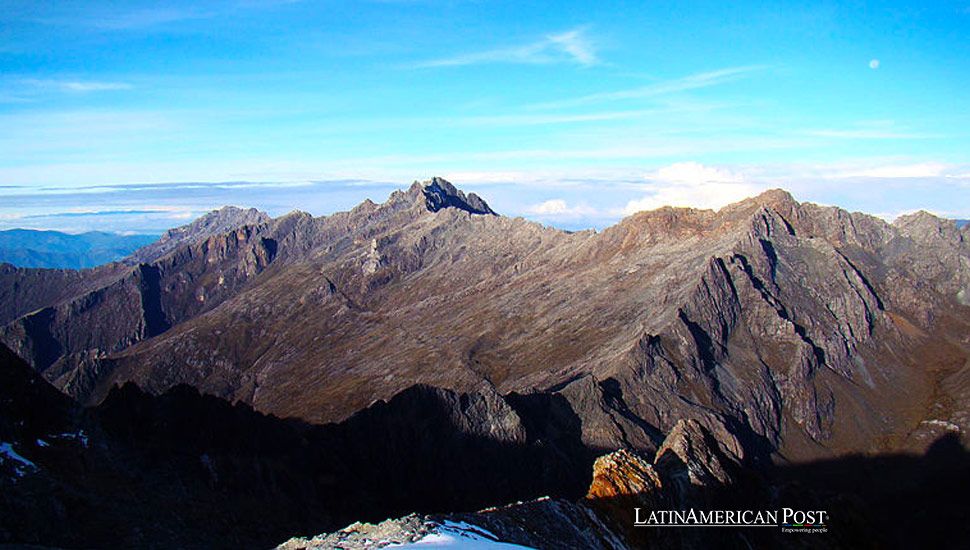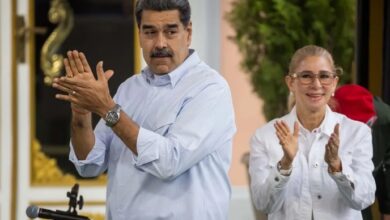Venezuela’s Last Glacier Redefined as Ice Field by Scientists

Venezuela is on the brink of becoming the first modern nation to lose all its glaciers as climate scientists reclassify its last glacier into an ice field, signaling a profound environmental shift.
In a stark reflection of the accelerating impacts of global climate change, Venezuela is poised to become the first country in contemporary history to lose all of its glaciers. The International Cryosphere Climate Initiative (ICCI), an influential scientific advocacy organization, recently announced that Venezuela’s sole remaining glacier, Humboldt Glacier, has now diminished to such an extent that it no longer qualifies as a glacier and is instead categorized as an ice field.
Glacier Decline: A Troubling Trend
The Humboldt Glacier, nestled in the Venezuelan Andes, was once a robust ice mass covering 450 hectares. However, recent measurements indicate a dramatic reduction to merely two hectares, underscoring a rapid and alarming retreat. This size reduction places it well below the commonly accepted minimum of 10 hectares required for a body of ice to be classified as a glacier, as outlined by the US Geological Survey.
Dr. Caroline Clason, a renowned glaciologist at Durham University, remarked on the glacier’s decline: “There has not been much ice cover on the last Venezuelan glacier since the 2000s. Now it’s not being added to, so it has been reclassified as an ice field.”
This reclassification is more than a semantic change; it marks a significant environmental milestone with profound implications for the region’s biodiversity, water supply, and ecological balance. Venezuela, known for its rich biodiversity and dramatic landscapes, has seen its glaciers dwindle one by one over the past century, with at least six other significant ice masses disappearing.
The broader implications of glacier loss are severe, not only for Venezuela but for the entire planet. Glaciers serve as vital freshwater reserves and reflect solar radiation, helping to moderate global temperatures. Their melting contributes to rising sea levels and the loss of freshwater resources, which many communities depend on for agriculture and daily living.
Dire Situation and Controversial Solutions
Luis Daniel Llambi, an ecologist at the University of Los Andes in Colombia, commented on the situation, highlighting that the remaining ice field is now even smaller than recent measurements suggest. “It has now shrunk to less than that,” he stated, indicating a situation more dire than many realized.
In December, the Venezuelan government took a controversial step by announcing a project to cover the remaining ice with a thermal blanket in hopes of stemming or reversing the thawing process. However, this initiative was met with skepticism from local climate scientists and environmentalists, who expressed concerns about potential contamination from degrading plastic particles used in the thermal blanket.
Professor Mark Maslin, a professor of earth system sciences at University College London, emphasized the irreversible nature of glacier loss. “Mountain glacier loss is not directly reversible,” he explained. Glaciers need sufficient ice mass to reflect sunlight and maintain cool air temperatures around them to survive through the summer months. “Once a glacier’s gone, the sunlight heats the ground, making it much warmer and much less likely to build ice up over the summer,” Maslin added.
The disappearance of Venezuela’s glaciers is not an isolated event. Maximiliano Herrera, an extreme weather researcher, noted that other countries close to the equator with relatively low-lying mountains, such as Indonesia, Mexico, and Slovenia, are also on the verge of becoming glacier-free due to similar climatic vulnerabilities.
rojections and Urgent Action
The loss of glaciers globally poses significant threats to water, food, and energy security, affecting millions of people and various ecosystems. Dr. James Kirkham and Dr. Miriam Jackson, both affiliated with the ICCI, shared that projections indicate a loss of between 20 and 80% of the world’s glaciers by 2100, depending on global emissions trajectory.
“This portion of the loss is already locked in,” they noted, “but rapidly lowering CO2 emissions could save other glacial deposits, which will have enormous benefits for livelihoods and energy, water, and food security.”
Also read: Reviving Maracaibo: Venezuela’s Battle for its Largest Lake
As the international community watches Venezuela approach this unwelcome milestone, the situation serves as a critical reminder of the broader impacts of climate change. It highlights the urgent need for global cooperation and action to mitigate these effects and protect vital natural resources for future generations.




